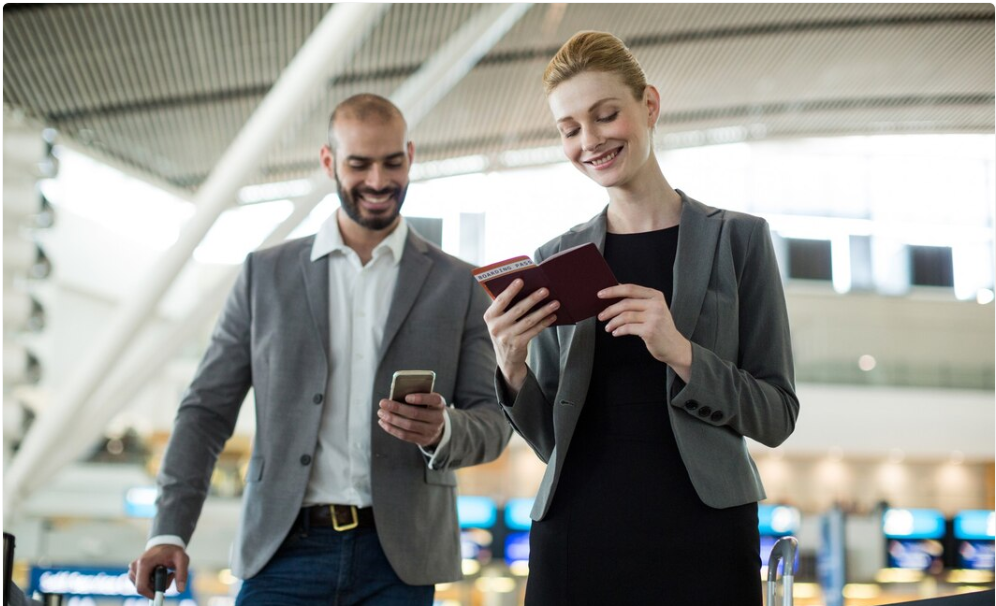
by Dulce Navarro | Apr 23, 2025 | Culture, Europe, Lifestyle, Residency, Travel, Work
Digital Nomad Relocation to Italy: What You Need to Know
In recent years, the allure of working remotely from picturesque European destinations has captured the imagination of digital nomads worldwide. Italy, with its rich cultural heritage, excellent cuisine, and vibrant lifestyle, is quickly becoming one of the top relocation choices for professionals seeking a change of scenery. But before you pack your bags and hop on a plane, it’s essential to understand the legal, logistical, and cultural aspects of becoming a digital nomad in Italy.
The Rise of Digital Nomadism in Italy
Italy’s charm isn’t limited to tourists. Remote professionals are increasingly looking at the country as a viable long-term base. The Italian government has recognized this trend and is actively working to accommodate the influx of international talent through new visa programs, co-working spaces, and support services tailored to digital nomads.
In 2022, Italy introduced legislation to establish a “digital nomad visa,” aimed at non-EU citizens who work remotely and wish to stay in the country for extended periods. While the full details are still evolving, the initiative marks a significant shift in how Italy is embracing remote work culture.
Understanding the Digital Nomad Visa
The Italian digital nomad visa is designed for highly skilled professionals who can work remotely and earn income from clients or employers based outside of Italy. While each applicant’s situation may vary, here are the general criteria:
- Proof of employment or business ownership: You must show that you work remotely for a non-Italian company or clients.
- Minimum income threshold: A stable and sufficient income to support yourself in Italy, often verified via bank statements or contracts.
- Health insurance: Applicants must carry valid international health insurance for the duration of their stay.
- No criminal record: A background check may be required during the application process.
It’s crucial to stay updated with your local consulate, as implementation details and requirements may vary depending on the region and your nationality.
Choosing the Right City
Italy offers a wide variety of cities and towns that cater to different lifestyles. Whether you’re drawn to historic architecture, coastal escapes, or metropolitan innovation, there’s something for everyone. Here are a few popular cities for digital nomads:
- Rome: The Eternal City is ideal for those who love history, culture, and networking opportunities.
- Milan: Italy’s fashion and business hub, perfect for professionals in design, tech, and finance.
- Florence: Rich in art and Renaissance charm, Florence is perfect for creatives and culture enthusiasts.
- Bologna: Known for its universities and tech startups, it offers a vibrant, youthful vibe with lower living costs.
- Sicily & Puglia: If you’re seeking affordability and sunshine, southern Italy offers incredible quality of life at a fraction of the cost.
Cost of Living
The cost of living in Italy varies significantly depending on the city. Larger cities like Milan and Rome can be more expensive, particularly when it comes to housing. However, smaller towns and southern regions offer far more affordable rent, utilities, and groceries—often with the added benefit of a more relaxed pace of life.
On average, a digital nomad can expect to spend between €1,500 and €2,500 per month, including rent, food, transport, and leisure. Shared apartments and long-term Airbnbs are common among nomads looking to keep expenses manageable.
Connectivity and Co-Working Spaces
Italy has significantly improved its digital infrastructure in recent years. Most urban and semi-urban areas have high-speed internet, making it possible to work efficiently from home or a co-working space.
Major cities like Milan, Rome, and Florence are home to numerous co-working hubs offering professional amenities, networking opportunities, and even wellness programs. Examples include Talent Garden (Rome and Milan), Impact Hub, and Copernico.
Cultural Considerations and Integration
While Italians are warm and welcoming, integrating into the local culture may take time. Learning basic Italian is highly recommended and can make everyday interactions—like shopping, dining, and dealing with bureaucracy—much smoother.
Adapting to the Italian way of life means adjusting to a different rhythm. For instance, businesses may close in the afternoon for a few hours, and meals are often leisurely social affairs. Embracing this cultural shift can significantly enhance your experience.
Legal and Tax Considerations
Understanding Italy’s tax laws is essential. If you reside in Italy for more than 183 days per year, you may be considered a tax resident and thus subject to Italian taxation on your global income. This can be complex, especially if you’re earning income from multiple countries.
It’s wise to consult an international tax advisor familiar with Italian laws to ensure compliance and optimize your tax obligations. Double taxation treaties may help reduce your tax liability if you’re paying taxes in your home country.
Final Thoughts
Relocating to Italy as a digital nomad offers an exciting opportunity to blend work and lifestyle in one of the world’s most beautiful countries. With its emerging visa programs, diverse cities, and rich cultural fabric, Italy stands out as a top choice for remote professionals. However, preparation is key—from understanding visa requirements to integrating into local life and managing your finances responsibly.
With the right mindset and planning, your Italian adventure can be not only personally fulfilling but also professionally enriching.
Stay Connected
Stay Connected for More Travel and Lifestyle Inspiration. For more insights into travel, culture, and lifestyle tips, follow me on
@salvadorordorica. If you’re seeking professional translation and localization services to enhance your global ventures, visit
The Spanish Group — your trusted partner in bridging cultures worldwide.

by Dominique Gomez | Apr 22, 2025 | Certified Translations, Work
At The Spanish Group, we are proud to announce that for the fifth consecutive year, we have been named to the prestigious Inc. 5000 list. This achievement is not just a recognition of our growth but also a testament to the dedication, hard work, and unwavering commitment of our team. It reflects the trust and confidence our clients place in us to deliver exceptional language services, and it reinforces our position as a leader in the global language solutions industry.
A Testament to Growth and Resilience
Being featured on the Inc. 5000 list is one of the most prestigious honors for any private company. It celebrates the fastest-growing companies in the United States, ranking them based on their revenue growth over a three-year period. This accomplishment is significant, as it underscores the consistent progress we have made in an increasingly competitive market.
The Spanish Group’s inclusion in the Inc. 5000 for five consecutive years is not only a milestone but a reflection of our resilience and adaptability. We have faced challenges, market fluctuations, and shifts in the language services industry, yet we have remained committed to delivering top-tier language solutions. This recognition serves as a reminder of the remarkable journey we have taken since our inception and the passion we have for what we do.
Expanding Horizons: Broadening Our Service Offerings
At The Spanish Group, we recognize that our clients’ needs are diverse, and so we have expanded our services to meet these demands. From legal and medical translations to website localization, certified document services, and more, we have made it a priority to diversify our offerings. This expansion has not only helped fuel our growth but also positioned us as a go-to provider of language solutions across industries and regions.
In particular, our legal and medical translation services have proven to be vital for clients navigating complex legal matters or healthcare needs. Legal documents require precision, accuracy, and an understanding of the cultural and legal contexts in both the source and target languages. Medical translations, similarly, demand a high degree of expertise to ensure that critical health-related information is communicated correctly. Our team of experts, with specialized knowledge in both of these fields, ensures that these documents are translated with the highest standards of quality and compliance.
Moreover, our website localization services have helped companies expand into new international markets. As businesses increasingly look to engage with global audiences, localization has become an essential service to ensure that their websites are adapted not only in language but also in cultural relevance. The Spanish Group has been at the forefront of this growing trend, helping businesses build stronger connections with their audiences worldwide.
Client-Centric Approach: Tailoring Services to Meet Unique Needs
Our success can be attributed to the strong relationships we build with our clients. At The Spanish Group, we don’t just offer one-size-fits-all solutions. Instead, we take the time to understand the unique needs of each client and tailor our services accordingly. Whether it’s a multinational corporation in need of high-volume translations or an individual requiring a certified translation for immigration purposes, we offer personalized solutions that best serve their specific requirements.
This client-centric approach has been key to fostering long-term relationships and building a reputation for reliability and excellence. We believe that every project, no matter how large or small, deserves the same level of dedication and attention to detail. Our clients return to us time and time again because they know they can count on us to deliver high-quality, accurate, and timely translations.
Technological Advancements: Innovating to Stay Ahead
In addition to our client-centric approach, we have consistently invested in technology to enhance our services. The language services industry is rapidly evolving, with new tools and platforms emerging that help improve efficiency, accuracy, and turnaround times. At The Spanish Group, we embrace these technological advancements to stay ahead of the curve.
We utilize the latest translation management software and tools to streamline our workflows, ensuring that our translations are delivered faster while maintaining the highest levels of quality. Additionally, we incorporate artificial intelligence and machine learning technologies to assist with tasks such as document translation, content analysis, and even quality assurance. These innovations not only improve the speed of our services but also enable us to scale our operations while ensuring consistent quality across all projects.
Looking Ahead: Committing to Continued Growth and Innovation
As we celebrate this remarkable achievement, we remain focused on the future. Our inclusion in the Inc. 5000 list for five consecutive years is not just a reflection of past success—it is a motivation to continue pushing boundaries, embracing new challenges, and delivering exceptional service. We are constantly exploring ways to improve our offerings and expand our reach. Our commitment to innovation, quality, and customer satisfaction remains at the core of everything we do.
We also recognize that our success is deeply intertwined with the success of our clients. As their trusted partner in language solutions, we are dedicated to helping them achieve their goals and navigate the complexities of the global market. Whether they are expanding into new regions, meeting regulatory requirements, or simply looking to communicate more effectively with diverse audiences, we are here to support them every step of the way.
Conclusion: A Bright Future Ahead
Being recognized on the Inc. 5000 list for five consecutive years is an incredible honor, and we are immensely proud of this achievement. However, we understand that this recognition is not the end of our journey but rather a milestone along the way. We are more committed than ever to continuing our growth, innovating in the language services industry, and providing our clients with the best possible solutions.
We would like to take this opportunity to extend our heartfelt gratitude to our clients for their continued support and trust. This achievement would not have been possible without them. As we look to the future, we are excited about the opportunities ahead and the role we will continue to play in shaping the language services industry.
Together, we look forward to achieving even greater milestones and making a positive impact on the global community in the years to come. Thank you for being part of our journey, and here’s to continued success and growth in the future!

by Dulce Navarro | Apr 22, 2025 | Business, Company, Culture, Europe, Lifestyle, Travel, Work, Worldwide
Cultural Localization in European Business: A Key to Success
In an increasingly interconnected world, businesses are no longer confined by borders. As companies expand into new markets, especially across Europe, cultural localization becomes not just a valuable strategy, but an essential element for success. Europe, with its diverse tapestry of languages, traditions, and business practices, demands more than simple translation — it requires an in-depth understanding of local customs and cultural nuances to build trust and long-term relationships.
Understanding Cultural Localization
Cultural localization is the process of adapting content, branding, and business strategies to align with the local culture of a target market. It goes far beyond translating text into another language. True localization takes into account idioms, humor, values, etiquette, design preferences, and even local regulations. In Europe, where countries are geographically close but culturally distinct, failing to localize can alienate customers and limit market penetration.
The European Mosaic: One Continent, Many Cultures
Europe is home to over 40 countries and more than 200 languages and dialects. From the reserved formalities in German corporate settings to the more expressive and interpersonal business culture in Italy, the differences can be stark. A one-size-fits-all approach to marketing or customer communication often falls flat. Cultural localization enables companies to resonate with each audience segment, showing respect and fostering genuine connections.
Why Localization Matters in European Business
- Enhanced Customer Experience: Localized content creates a sense of familiarity and comfort, making customers feel understood and valued.
- Higher Conversion Rates: Consumers are more likely to engage with and purchase from brands that communicate in their language and tone.
- Improved Brand Reputation: Demonstrating cultural awareness signals respect and builds a brand’s credibility in the local market.
- Legal Compliance: Many EU countries have specific laws regarding product labeling, contracts, and consumer rights, all of which require accurate localization.
Examples of Effective Localization Strategies
Global giants like Coca-Cola, Airbnb, and Netflix have successfully entered European markets by embracing cultural localization. Netflix, for instance, produces region-specific content in local languages with culturally relevant themes. Airbnb adapts its platform interface and communication style to align with regional hospitality norms, ensuring comfort and trust in every booking.
Even SMEs (small and medium enterprises) are leveraging localization by hiring native-speaking customer service agents, customizing social media content, and working with local influencers. These steps significantly boost user engagement and brand loyalty.
Steps to Implement Cultural Localization
- Market Research: Start with in-depth research into your target market’s cultural values, language, consumer behavior, and competitors.
- Hire Local Experts: Collaborate with local translators, marketers, and cultural consultants who can ensure your messaging is appropriate and effective.
- Adapt Visuals and UX: Tailor website design, color schemes, imagery, and navigation to local aesthetic preferences and usability expectations.
- Localize Content and Messaging: Customize everything from slogans and advertisements to social media posts and product descriptions.
- Test and Iterate: Use A/B testing and collect feedback from local users to refine your approach continuously.
Challenges to Consider
While localization is highly rewarding, it comes with challenges. Missteps in cultural interpretation can lead to offense or misunderstanding. It also requires time, resources, and a commitment to continuous adaptation as cultures and consumer preferences evolve. However, these challenges can be mitigated by investing in professional localization services and maintaining open communication with local teams.
The Role of Translation and Localization Services
Partnering with experienced translation and localization providers like The Spanish Group ensures high-quality, culturally sensitive communication. These services are instrumental in navigating the complex landscape of European business, offering tailored solutions that bridge language and culture seamlessly.
Conclusion
In today’s globalized economy, cultural localization is no longer optional — it’s the cornerstone of successful international business, particularly in Europe. Companies that invest in understanding and respecting local cultures gain a competitive advantage and build lasting relationships with customers. Whether you’re a multinational corporation or an emerging entrepreneur, embracing localization will pave the way for sustainable growth and meaningful connections.
Stay Connected for More Travel and Lifestyle Inspiration. For more insights into travel, culture, and lifestyle tips, follow me on Instagram @salvadorordorica. If you’re seeking professional translation and localization services to enhance your global ventures, visit The Spanish Group — your trusted partner in bridging cultures worldwide.

by Dulce Navarro | Apr 21, 2025 | Business, Company, Languages, Lifestyle, Travel, Work
Overcoming Language Barriers During Business Travel in Europe
For company directors and business leaders, navigating the multilingual landscape of Europe can be both exciting and challenging. The continent’s cultural diversity is a major asset in global commerce, but it can also present significant communication obstacles. Successfully managing these language differences is key to forging strong business relationships, maintaining professionalism, and ensuring seamless operations across borders.
Why Language Barriers Matter
When traveling for business, even minor misunderstandings can result in lost opportunities, damaged relationships, or contractual errors. Miscommunication may arise during meetings, negotiations, or even informal gatherings. In regions where English is not widely spoken or where local dialects are predominant, these risks are even greater. Hence, addressing language barriers is not merely a matter of convenience—it’s a strategic priority.
Strategies for Overcoming Language Barriers
1. Utilize Professional Translation Services
Whether it’s translating business contracts, presentations, or emails, professional translation services are invaluable. Services like The Spanish Group specialize in certified and business-critical translations that ensure accuracy and cultural appropriateness. This is especially crucial when dealing with legal or financial documents.
2. Invest in Real-Time Interpretation
When attending meetings or conferences, consider hiring an interpreter to facilitate real-time communication. This not only enhances understanding but also conveys respect for the local language and culture. Many interpretation services now offer virtual solutions that can be accessed remotely, making them more accessible than ever.
3. Learn Basic Local Phrases
Making an effort to learn common greetings, thank-yous, and phrases related to your business can go a long way. It demonstrates cultural sensitivity and often earns goodwill from your international counterparts. Apps like Duolingo or Babbel can help you get started quickly.
4. Use Multilingual Business Cards and Materials
When traveling in non-English-speaking countries, it’s wise to have bilingual business cards and brochures. This ensures that your materials are accessible and shows your preparedness and professionalism.
5. Leverage Technology
Modern technology provides an array of tools for overcoming language challenges. Apps like Google Translate, iTranslate, and SayHi can be helpful in informal settings or emergencies. For more formal settings, AI-powered meeting transcription and translation tools like Otter.ai or Microsoft Translator can support communication.
Popular Destinations and Their Linguistic Challenges
France
Business culture in France values formality and precision in communication. While many professionals speak English, it’s often appreciated when visitors make an effort to communicate in French. Hiring a translator for official meetings is a good practice.
Germany
Germans are typically multilingual, especially in major business hubs like Frankfurt or Berlin. However, official documentation is often in German, and formal negotiations may benefit from translation support to avoid misunderstandings.
Spain
Spain’s regional diversity includes languages such as Catalan, Basque, and Galician. While Spanish is the national language, understanding regional nuances can enhance local connections. Translation services help ensure clarity across dialects.
Italy
In Italy, personal relationships are key to business success. English is spoken in larger cities, but using Italian in meetings or materials adds a personal touch and often opens doors more easily.
Building a Multilingual Team
As your business expands across Europe, consider building a team with multilingual capabilities. Hiring local talent not only bridges language gaps but also brings regional insights that can shape marketing, customer service, and operations strategies.
Working with Local Partners
Partnering with local firms—whether for legal, logistics, or consulting purposes—ensures that you benefit from native fluency and cultural expertise. These partnerships often make navigating bureaucratic and linguistic hurdles far smoother.
Final Thoughts
Language should never be a barrier to success. With the right preparation, tools, and support, you can confidently conduct business across Europe while respecting and embracing its rich linguistic diversity. Prioritize communication strategies that bridge gaps and foster connection—it will set you apart as a thoughtful and adaptable leader in the international arena.
Stay Connected for More Travel and Lifestyle Inspiration
For more insights into travel, culture, and lifestyle tips, follow me on Instagram @salvadorordorica. If you’re seeking professional translation and localization services to enhance your global ventures, visit The Spanish Group — your trusted partner in bridging cultures worldwide.

by Dulce Navarro | Apr 17, 2025 | Culture, Europe, Languages, Lifestyle, Residency, Travel, Work
How to Overcome Language Barriers as a Digital Nomad
In today’s globally connected world, digital nomads are redefining what it means to live and work abroad. However, one of the most common challenges they face is navigating language barriers. Communication is central to both professional success and cultural integration, and a lack of fluency can lead to missed opportunities and unnecessary frustrations. For company directors who frequently travel or manage international teams, understanding how to effectively overcome these barriers is key to thriving in a foreign environment.
Embrace the Basics Before You Travel
Before arriving in a new country, it’s beneficial to learn the basic phrases of the local language. Greetings, directions, numbers, and polite expressions go a long way in establishing rapport. Numerous language apps like Duolingo, Babbel, or Rosetta Stone offer quick-start lessons tailored for travelers. These tools help build confidence and reduce dependence on English in everyday scenarios.
Use Translation Tools Wisely
While not a substitute for language learning, digital translation tools can be lifesavers in many situations. Apps such as Google Translate and DeepL allow users to translate text, voice, or even images in real time. Carrying a phrasebook app or a mobile dictionary can also help in offline situations. For business settings, consider using professional translation services for documents and legal materials to ensure accuracy and professionalism.
Leverage Local Language Classes
Immersing yourself in the local language through formal classes is one of the most effective ways to gain fluency. Many cities popular among digital nomads—like Barcelona, Paris, or Bali—offer short-term or intensive language courses tailored for foreigners. This not only enhances your language skills but also provides social opportunities and cultural insight.
Build Relationships with Locals
Building genuine relationships with locals is an invaluable step in overcoming language barriers. Engaging in conversations, asking questions, and expressing interest in their culture encourages reciprocal communication. Even if your grammar isn’t perfect, the effort is often appreciated and can lead to faster learning and deeper community integration.
Work with Bilingual Professionals
When possible, collaborate with bilingual partners or hire interpreters for critical meetings. In business environments, this ensures that both parties clearly understand each other, reducing the risk of miscommunication. It’s especially important in legal, medical, or financial contexts, where accuracy is paramount.
Use Visual Communication
When words fail, visuals succeed. Gestures, diagrams, maps, and pictograms are excellent tools for communicating basic concepts. Even in professional settings, using slides, infographics, or diagrams during presentations can help bridge language gaps and clarify your message.
Adapt Your Communication Style
Speaking slowly, avoiding idioms, and using simple vocabulary can drastically improve understanding. Digital nomads should be mindful of cultural communication differences as well—what may be considered polite or normal in one culture may be misinterpreted in another. It’s often helpful to confirm understanding by summarizing key points and asking open-ended questions.
Stay Patient and Open-Minded
Learning a language and integrating into a new culture is a process that takes time. Frustrations are normal, but staying patient and maintaining a sense of humor can ease the transition. Celebrate small wins, such as ordering food successfully or having a casual chat with a neighbor, as milestones in your journey.
Professional Translation and Localization Services
For digital nomads who run international businesses or manage global teams, partnering with a professional translation agency can streamline operations. Services like The Spanish Group offer certified translations, website localization, and multilingual marketing materials that help businesses communicate effectively across borders.
Conclusion
Overcoming language barriers is not just about fluency—it’s about connection, adaptability, and respect for local cultures. By embracing tools, strategies, and local experiences, digital nomads can transform language challenges into meaningful opportunities for growth and collaboration.
Stay Connected for More Travel and Lifestyle Inspiration. For more insights into travel, culture, and lifestyle tips, follow me on Instagram @salvadorordorica. If you’re seeking professional translation and localization services to enhance your global ventures, visit The Spanish Group — your trusted partner in bridging cultures worldwide.

by Dulce Navarro | Apr 16, 2025 | Countries, Culture, Europe, Lifestyle, Residency, Travel, Work
Everything You Need to Know About Digital Nomad Visas in France
France has long captivated travelers with its art, culture, and lifestyle. But now, the country is becoming increasingly attractive to digital nomads and remote workers seeking a temporary yet immersive European base. With changing work environments and the rise of remote professions, digital nomad visas are gaining popularity — and France is no exception. If you’re a professional looking to live and work in France legally while maintaining employment elsewhere, this guide is for you.
What is a Digital Nomad Visa?
A digital nomad visa allows remote workers, freelancers, and self-employed professionals to live in a foreign country while working for clients or companies based outside that country. Unlike a tourist visa, which usually limits your stay to 90 days, a digital nomad visa often provides longer and renewable residency options, allowing you to enjoy life abroad without legal complications.
Is There a Digital Nomad Visa for France?
While France does not have a dedicated “digital nomad visa” by name, it offers several visa options that digital nomads can take advantage of, including:
- Long-Stay Visa (Visa de Long Séjour): Ideal for freelancers or self-employed individuals. This visa allows you to stay in France for more than 90 days and can be renewed.
- Profession Libérale Visa: Designed for those who want to work as a freelancer or operate a business in France.
- Talent Passport: Suitable for highly skilled professionals, especially in tech, science, and business sectors.
Eligibility Criteria
The exact requirements vary depending on the type of visa you apply for, but common eligibility criteria include:
- Proof of sufficient income or financial resources
- Valid health insurance covering your stay in France
- A clean criminal background check
- Documentation supporting your professional activity (contracts, client lists, portfolios)
How to Apply
The application process typically involves several steps:
- Determine the best visa option for your situation
- Gather the required documentation
- Apply through your local French consulate or embassy
- Attend a visa interview if necessary
- Wait for visa approval and travel to France
Benefits of Living in France as a Digital Nomad
Choosing France as your base offers a wealth of benefits:
- Access to high-speed internet and coworking spaces in major cities
- Excellent healthcare system
- Rich cultural experiences and scenic travel opportunities
- Proximity to other European countries for easy weekend getaways
- A strong expat community to connect and network with
Challenges to Be Aware Of
Living in France as a digital nomad isn’t without its challenges. Consider the following:
- Language barriers, especially in rural areas
- Complex administrative processes and paperwork
- Cost of living in cities like Paris can be high
- Strict tax regulations for those staying long-term
Tips for a Smooth Transition
- Take French language classes before and during your stay
- Work with a relocation specialist or visa consultant
- Use expat forums and local networks to get insider advice
- Keep all documents well-organized and digitized
Future Outlook
France is actively working to attract international talent and entrepreneurs. While there’s no official digital nomad visa yet, discussions continue within policy circles. The current visa options provide a solid foundation for professionals seeking a semi-permanent European lifestyle.
Conclusion
Living and working in France as a digital nomad is entirely feasible with the right visa and preparation. From world-class infrastructure to an enriching lifestyle, France remains a top choice for professionals looking to blend productivity with cultural exploration.
Stay Connected for More Travel and Lifestyle Inspiration. For more insights into travel, culture, and lifestyle tips, follow me on Instagram @salvadorordorica. If you’re seeking professional translation and localization services to enhance your global ventures, visit The Spanish Group — your trusted partner in bridging cultures worldwide.






